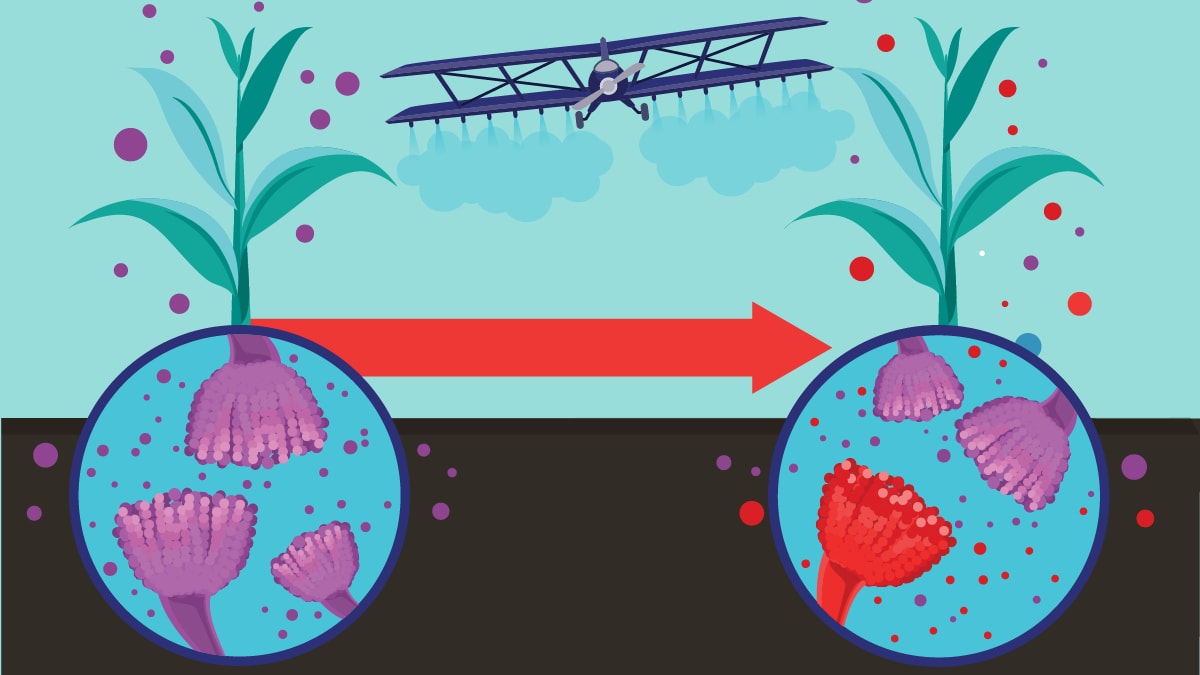What to know
- A. fumigatus is a fungus in the environment that can cause severe illness in some people.
- Azole antifungal medications usually kill A. fumigatus and treat infections, but antifungal resistance can develop after long-term use.
- Azole fungicides work similarly to kill A. fumigatus that threatens plants but can also cause A. fumigatus to become resistant.
- People can get infected with antifungal-resistant A. fumigatus following long-term azole use or from breathing resistant A. fumigatus in the environment.

Two ways A. fumigatus develops antifungal resistance
Download a printable infographic version [PDF – 1 page]
Antifungal resistance is increasing in the species Aspergillus fumigatus (A. fumigatus) and can cause severe illness. Use of azole antifungals in medicine and azole fungicides in agriculture contribute to the emergence of resistant infections.
A. fumigatus can develop resistance in a patient


A. fumigatus can develop azole resistance in the environment


Azole-resistant A. fumigatus infections

People can get infected with antifungal-resistant A. fumigatus following long-term azole use or from breathing resistant A. fumigatus in the environment.
Azole-resistant A. fumgatus is increasing. Infections are hard to treat and can be life-threatening.
